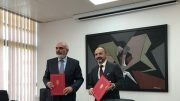Several notifications of election fraud in Russia
The Presidential elections in Russia are marred by reports of large scale election fraud and dirty play. Vladimir Putin is expected to win the vote by an overwhelming margin.
The Russian election observer Golos issues an interactive map of areas where violation of the electoral law in Russia has been detected.
One blatant example is that employees in Governmental institutions receive letters from their administrations where they are told that they have to bring their families along and cast their votes at polling stations at their workplace, the Norwegian Helsinki Committee reports to NTB.
– At the polling stations there are pictures of Putin hung on the walls. If they choose not to vote, it is made clear to them that they must be “prepared to face the consequences.” It is not spelled out that they must vote for Putin or what the consequences will be, but it is easy to imagine what they are, says senior adviser in the Norwegian Helsinki Committee, Lene Wetteland .
– Russia is a society that does not trust in the institutions, therefore administrative pressure from superiors is more effective from the top down, she adds.
Fake observers
On Sunday, the Norwegian Helsinki Committee observes “election nights” in Oslo, where a number of political activists participate in the debate. Wetteland points out that she does not view the elections in Russia as a real election in our sense of the word.
Local election observers have been denied access to several voting stations. Additionally, reports of fake election observers representing both Putin’s regime and former Soviet states, who appear at voting stations, are not there to observe, but rather to legitimize the charade, according to Wetteland.
– Since 2011, Putin has tightened up several laws and curbed freedom of expression, freedom of assembly and joining unions. One presidential candidate has been shot and another has been in and out of jail. That’s not how democratic elections are supposed to work, the senior advisor says.
The election in Russia is held on the day The Crimean Peninsula was annexed in 2014, a symbolic day for Putin’s popularity in Russia. The election is also taking place in the midst of a heated diplomatic crisis between Russia and the United Kingdom as a result of the nerve gas attack against former Russian double agent, Sergei Skripal, and his daughter in the sleepy English town of Salisbury.
Diplomatic crisis
As a result of the attack, the United Kingdom has expelled 23 Russian diplomats suspected of illegal intelligence activity from the country, and on Saturday, Russia responded by expelling the same number of British diplomats. The resolute answer from Putin is welcomed by the Russian people, according to Denmark’s ambassador to Russia, Thomas Winkler.
– The expulsion of the British diplomats is perceived by Russians as showing that Putin reacts strongly to the threats and forces in the West who want to keep Russia under their heel. The Scripal case is perceived by Russians as phobia against everything Russian, says Winkler to the news agency Ritzau.
Wetteland believes the Skripal case has been provoked strong feelings in both directions. Russians who dislike the position that Russia has internationally under Putin has that image enhanched. Those who believe it is a world conspiracy directed at Russia going on, and that Russia can not do anything that will please the West, are also strengthened in their view.
Warns against fixation on Putin
She also believes the issue is used by Putin’s propaganda machine for what its worth.
– A Russian cartoonist, Sergej Jolkin, has drawn Putin where he stands with two placards. On the one placard, he tells the Russian audience that the Skripal case illustrates what happens to traitors, and on the other he tells the rest of the world that we always blame Russia for what happens, says Wetteland.
Wetteland warns against “fixation on Putin”, and underlines that the Russian people themselves do wish for more democracy and improved human rights.
– Those who work towards this goal must be listened to as well, says the senior advisor.
Facts about the Russian presidential elections
- The first voting stations opened Saturday at 9 pm CET in the eastern parts of Russia neear to the Pacific Ocean. The last voting stations in Kalliningrad will close on Sunday at 7 pm CET.
- The Russian presidential election has 110 million registered voters. To be eligible to vote, you must be 18 years old, just as in Norway.
- The winner will remain in power until 2024.
- President Vladimir Putin, who has alternated as Prime Minister and President since 2000 – mainly in order to circumvent the law preventing him from being elected as President for more than two consecutive periods – is headed towards re-election, according to all polls. His aim is to secure 70 per cent of the votes, and that 70 per cent will participate in the general elections.
- At the previous presidential election, in 2012, Putin gained 63.6 per cent support from the voters. The participation was at 65.3 per cent on that occasion.
- Other candidates allowed to participate are: Vladimir Zjirinovsky (populist representing the Liberal Democratic Party), Ksenia Sobtsjak (Liberal TV celebrity, blogger and journalist, representing the Citizens rights Party), Pavel Grudinin (Businessman from the former ruling Communist Party), Grigorij Javlinsky (Veteran of the Liberal Opposition, representing Jabloko), Boris Titov (businessman, supported by the Growth Party), Maksim Surajkin (from a minor Communist Party) and Sergey Baburin (representing the Union of the People).
- Opposition politician Aleksej Navalnyj is not allowed to run for office. The reason is a conditional sentence against him. The case is, according to him and many others, politically motivated.
© NTB Scanpix / #Norway Today


